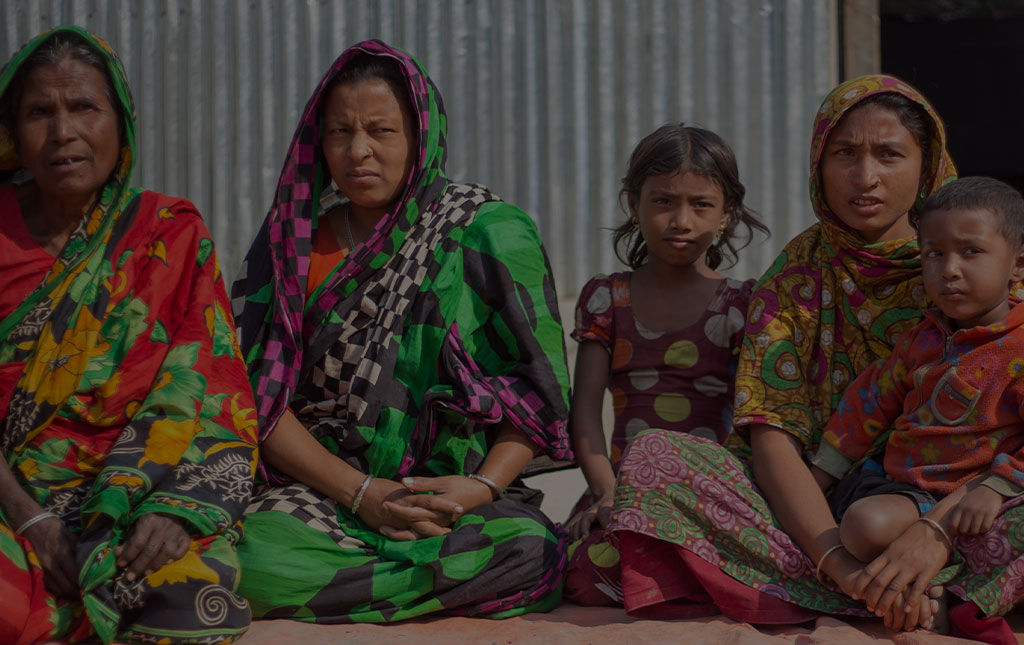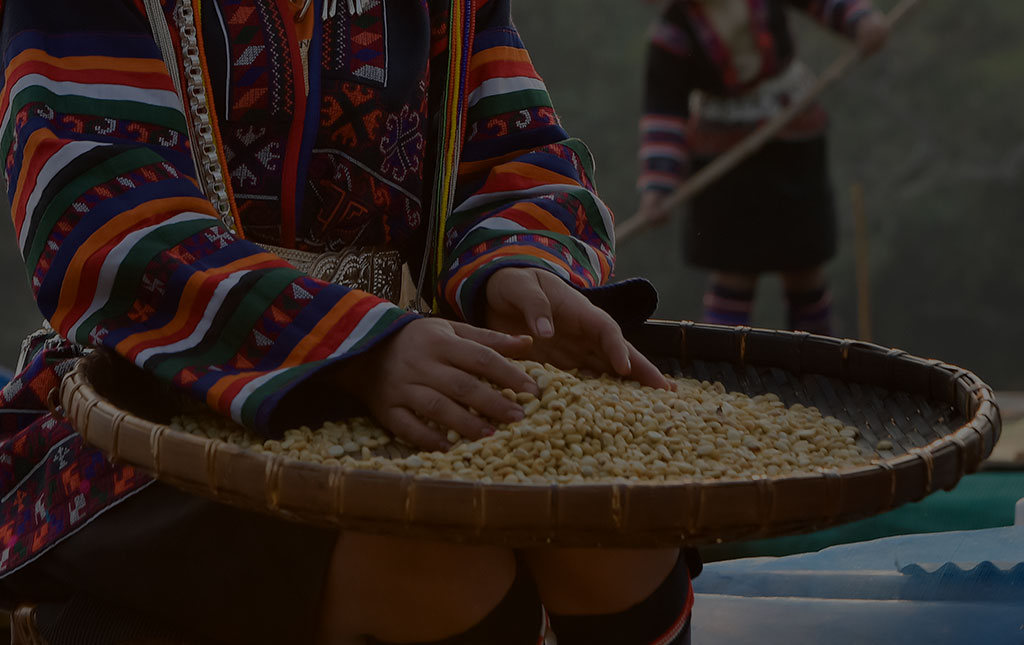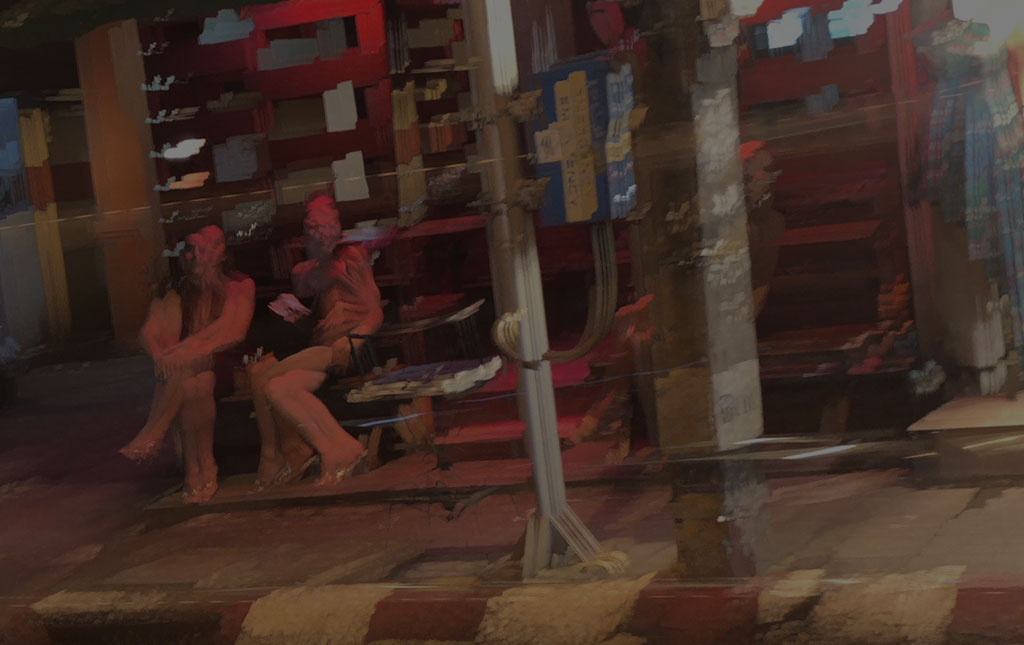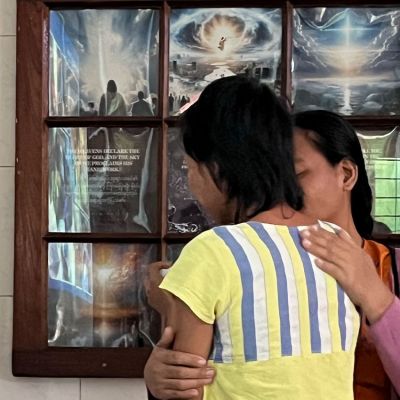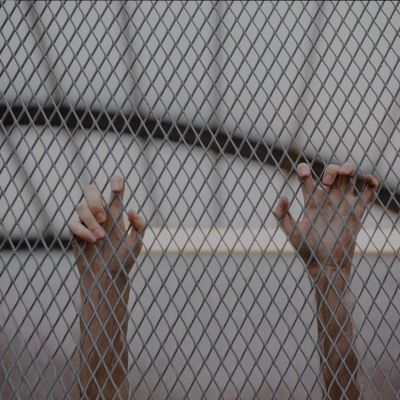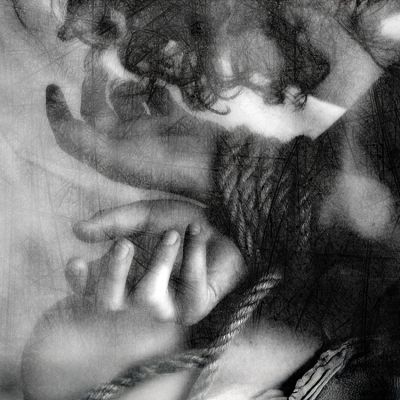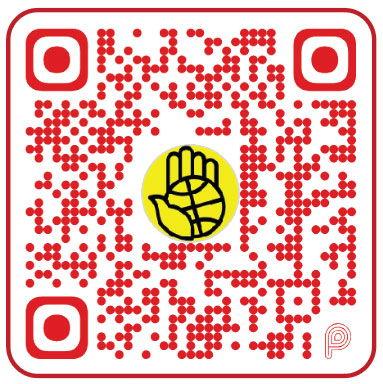Written by Clara Chiu (Head of Partnership Development)
In February this year, my colleague and I went on a field trip to Yangon, Myanmar, to visit our project partners. At that time, news of human trafficking in Myanmar was all over the city. When my friends and relatives heard that we were going to Myanmar, their immediate reaction was: ‘Are you going to KK Park?’ When people hear about Myanmar, they associate ‘trafficking’ and ‘fraud’. Indeed, trafficking is everywhere in Myanmar.
Human Traffickers Defraud Parents in Slums
On our first day in Myanmar, we visited our partner serving in the slums of Yangon. They had set up a community centre (a hut made of tin) with groups for men, women, families, and youths to study the Bible and pray together. A little food was given to the groups after each meeting. One woman shared during our fellowship with the groups that she almost sold her daughter.
Yaya (pseudonym), aged 35, has three daughters and a son, the eldest is 16 years old and the youngest is 1 year old. Her husband works as a casual labourer in a coconut shop, earning about MMK 20,000 (about HK$74) per day, but only one day of work every two weeks, which means a monthly income of only MMK 40,000, and Yaya has borrowed money from loan sharks and villagers to support her family. The interest rate is also very high at about MMK 16,000 per day (about HK$60). With reference to the average wage of local grassroots workers (construction workers, for example), which ranges from MMK 7,000 to 10,000 per day, Yaya’s daily interest rate turns out to be higher than the workers’ daily wage. She is in debt and her life is precarious, what can she do?
One day, an ‘agent’ called Yaya and persuaded her to sell her daughter to a neighbouring country for marriage, and her daughter could return home after three years. At that time, her daughter agreed to the arrangement to alleviate the pressure on her family. I asked Yaya if she knew that this was human trafficking at that time, she shook her head and said she did not know. According to our partner, villagers in the slums have not received any anti-human trafficking education. Even if the government publicises the issue occasionally, it is just some superficial slogan, and the police seldom deal with the problem of human trafficking. In fact, numerous strangers enter the slums and ask for the girls’ personal details, claiming to offer employment opportunities. They then pay their parents about MMK 100,000 (about HK$370) as a ‘deposit’ and take the girls away, and the girls are never seen again.
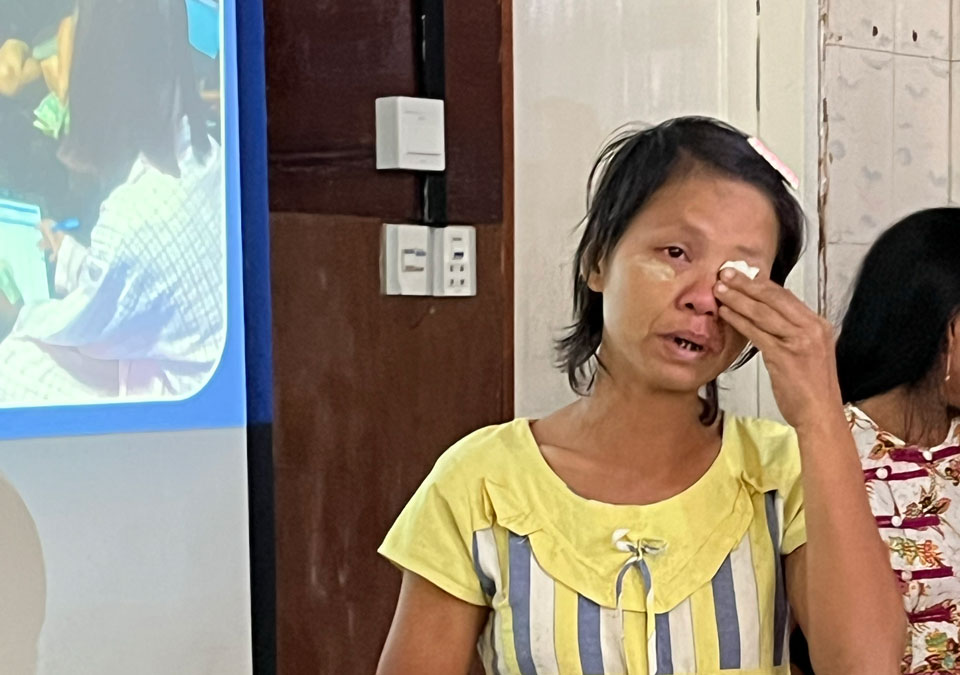
Human Trafficking is Everywhere
In the afternoon of the same day, we visited another partner who had started a children’s learning space in a poor village. During this visit, a teacher asked for help because more than 50 young people in his neighbourhood had been trafficked and did not know what to do with them. We then contacted our partner who are fighting against human trafficking on the Thai-Myanmar border and asked for their help. At that time, I gazed at the students at the learning space and felt anxious as they were the targets of traffickers. Before leaving, I asked the children if they knew what human trafficking was. Fortunately, they had received anti-trafficking education. However, it is hard not to worry for them as traffickers are not easy to prevent.
On the second day of our trip, we visited another partner who runs two daytime drop-in centres in Yangon. The centres provide three months of vocational training, emotional and livelihood support to survivors of trafficking and sexual exploitation. The beneficiaries are predominantly female. At the centre, we also met a male trafficking victim who was referred to our partner. A Malaysian man, aged about 30, had fallen into the trap of human trafficking and was deceived by his friend, working in three scam compounds for more than two years. Just like those stories on the news: he was forced to commit telephone fraud, and was whipped and shocked with an electric prod; he was injured when he failed to escape; and he saw a ‘colleague’ commit suicide by jumping off a building.
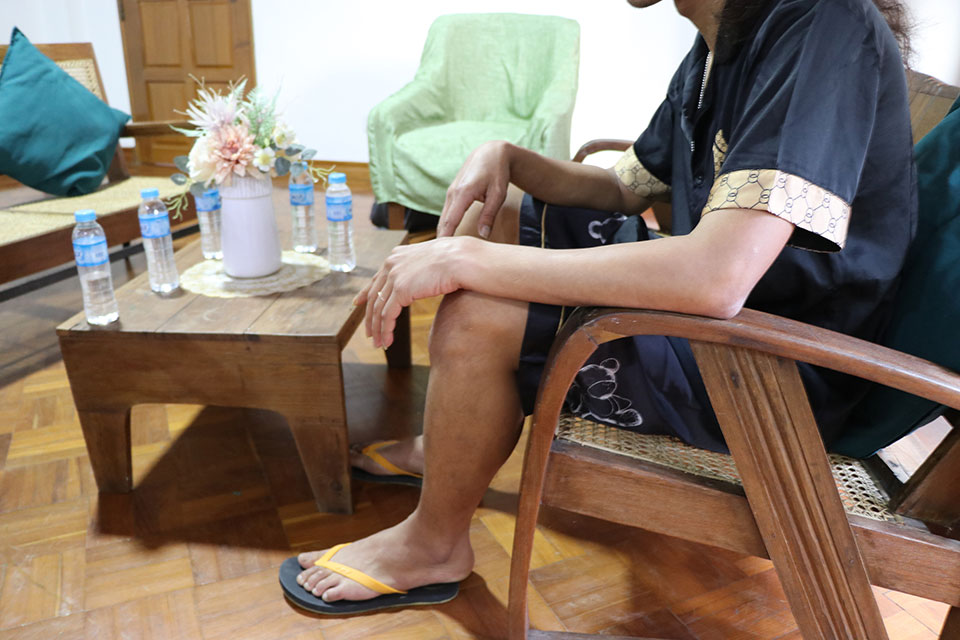
I also interviewed another beneficiary, Nwe (pseudonym), who was trafficked to Laukkai of Kokang and managed to escape to Yangon, where she met our partner’s outreach team on the street and joined our partner’s training and supporting programme. She attended a hair styling training at the centre. She enjoyed going to the centre because of the kindness and care she received from the teachers and staff, the new friends she made, and the modest amount of food provided each time she visited (which was a strategy used by our partner to reduce the likelihood of survivors returning to work in red-light districts to sustain themselves). Our partner told me that Nwe also receives individual counselling and different types of art therapy to treat the trauma of being trafficked.
Apart from going out on the streets, our partner also goes straight to karaoke and red-light districts to reach out to the girls working there, pray for them, and distribute gospel pamphlets and contact information of the centres to them. I wonder why the leaders of the sex establishments would allow our partner to go in and ’cause trouble’. Our partner said that in the business world, if one is willing to pay for the room rent, they do not care what the customers do in the room. What if our partner succeeds in persuading the girls to ‘leave’? Our partner explained that the turnover rate of girls in those places is very high and their ’employers’ do not care whether they stay or go.
On the other hand, our partner is very concerned about the retention of the beneficiaries. Three months after joining the programme, the survivors are expected to earn a living with the skills they have learnt and live independently rather than relying on the centres’ support in the long term. Like Nwe, she nears the end of her training and is working hard to save up the shampooing supplies she has received from the centre, intending to open her own hair salon when she graduates. As a young mother of two, including a 10-year-old son with autism, Nwe has a heavy burden of caring for her family on her own. According to the programme experience, it is easy for a beneficiary to return to work in the red-light district under such circumstances. However, I am thankful that she got to know Jesus at the centre and learnt from the Bible that the body is the temple of the Holy Spirit, so she reminds herself not to return to her old job just for the sake of money.
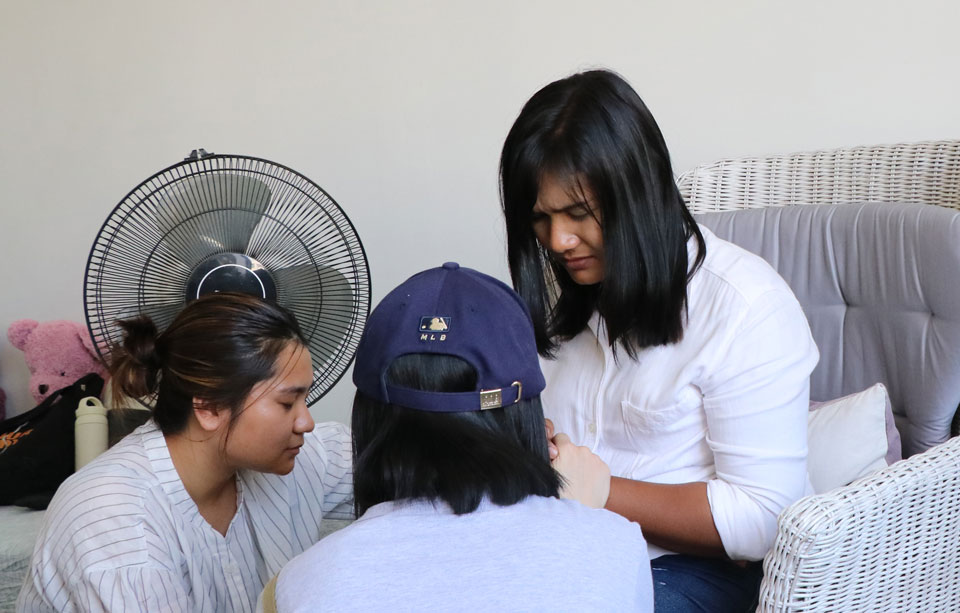
Finally, I would like to share a quote from our partner: ‘Trafficking often starts with vulnerability.’ To combat human trafficking, we must start from the root cause, help the community to build up their understanding of human trafficking and their basic earning capacity, and cooperate with the governments of various countries to combat the criminals; however, there is a limit to the power of human beings. It is only through the manifestation of God’s justice and the coming of the Kingdom of Heaven that Myanmar will be able to rid itself of the stigma of being synonymous with ‘human trafficking’.
your response
Join our ‘Remove Price Tag, Free Body & Soul’ Donation Campaign through monthly donations and prayers to support our anti-human trafficking effort. Let us act justly, love mercy, and look after vulnerable women and children!
Operating community centres, offering anti-trafficking training and livelihood support to residents (based on half month’s expenditure).
Provide grants, vocational training, or support for self-employment to two victims of human trafficking (based on one year’s expenses).
Support the expenses of rescue team members in locating victims of human trafficking and carrying out rescue operations (based on half a month’s expenses).
Tracing the crime of online sex trafficking, with a team of
professional investigators collecting evidence and helping the Thai government to prosecute traffickers.
ARTICLES OF THIS ISSUE
Written by Clara Chiu (Head of Partnership Development) In February this year, my colleague and I went on a field trip…
Written by Dr. Alex Ip (Director, CEDAR Fund) Scriptures reading: Philemon 10-12 10 That I appeal to you for my son On…
Written by Dustin Tang (Donor Services Officer) Nepal is one of the countries where human trafficking is rampant. Traf…
Written by Ken Wong (Communications Officer) The problem of transnational human trafficking has become increasingly se…
donation method
(Please specify: Remove Price Tag, Free Body & Soul)
Cheque
Please make it payable to CEDAR FUND
Direct Deposit
HSBC: 004-600-385678-001
BEA: 015-185-68-00931-7SSA
BOC: 012-581-2-020114-7
DBS: 016-478-001364162
Faster Payment System
FPS ID: 3354016 or scan the below code in the online banking
After donation, please send a completed Donation Form, enclosing with cheque, bank-in slip or screenshot of successful payment along with your name, contact phone number and mailing address to us via mail, email or WhatsApp.
Address: CEDAR Fund, G.P.O. Box 3212, Hong Kong
Email: sharing@cedarfund.org
WhatsApp (for donation matters only): 5160 7549
- CEDAR is an approved charitable institution and trust of a public character under section 88 of the Inland Revenue Ordinance. Please visit Inland Revenue Department website for details.
- CEDAR Fund will issue a receipt for a donation of HK$100 or above for tax deduction. For a donation of less than HK$100, please get in touch with us to issue a receipt.
- Please DO NOT fax any donation information.


